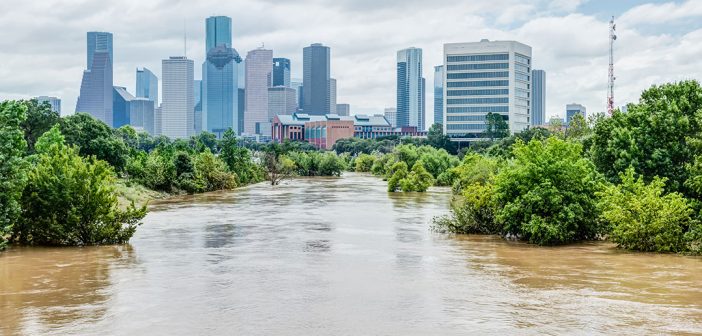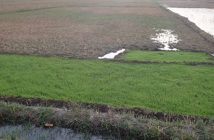The 513-page 2023 Economic Report of the President, which was issued on March 23 by the Executive Office of the President’s Council of Economic Advisers, cited two papers by Conte and his coauthors in the report’s ninth chapter, “Opportunities for Better Managing Weather Risk in the Changing Climate.”
The papers were An Imperfect Storm: Fat-Tailed Tropical Cyclone Damages, Insurance, and Climate Policy, which was published in the Journal of Environmental Economics and Management in 2018, and Noah’s Ark in a Warming World: Climate Change, Biodiversity Loss, and Public Adaptation Costs in the United States, which was published in the Journal of the Association of Environmental and Resource Economists in 2022.
The presidential report, which is transmitted to Congress no later than 10 days after the submission of the budget each year, presents an overview of the nation’s economic progress and outlines plans for the future.
Climate change was first addressed in the report in 2010 and was included intermittently up until 2018 when it was not addressed. It was reintroduced in last year’s report, and this year, it included the weather risk chapter, which addresses the ways that market failures prevent societies from adapting to the increased risk associated with climate change.
Threats No Longer in the Distant Future
The common thread connecting Conte’s two papers is that threats from climate change that were once thought to be distant are in fact present today. The first is cataclysmic “once in a 1,000 years” storms like Hurricane Harvey, he said, that have become stronger in part because of warmer ocean temperatures. The second is the ongoing rapid loss of flora and fauna that the United Nations has estimated will result in the loss of a million species within decades.
“Our research shows that if we want to be able to adapt to these threats from a changing climate, we need to have a better understanding of the full scope of their impacts,” said Conte.
Reluctant Insurers
“The imperfect storm paper shows how challenging it is to adapt to tropical cyclones because they’re infrequent events that can vary dramatically in the magnitude of their impacts. That variability in the impacts of extreme (tail) events makes it difficult for insurers and policy makers to motivate adaptation,” he said.
Recognizing the Value of Biodiversity
“In ‘Noah’s Ark in A Warming World,’ we looked at the impacts of climate change on the species that are listed under the Endangered Species Act in the U.S., and found that there are going to be big increases in expenses that have to be made to try to protect those species.”
Both problems stem from failures of the market, he said, but they manifest themselves very differently. In the first problem, population centers in the United States continue to grow even in areas that are vulnerable to catastrophic storms, as prices in key markets do not reflect the risk of storm damages, meaning that it is still economically advantageous to do so. In the second, there are no markets to provide clear signals of the value of biodiversity, even though diverse flora and fauna are key to supporting human life.
It’s important for the government to address climate change in a report about economic progress, he said, because the market alone is not equipped to solve the problem.
“A well-designed regulatory policy is going to be critical to deal with the challenge of climate change, so the fact that these policymakers are aware of this type of work sends a signal that they are starting to take these risks seriously,” he said.




